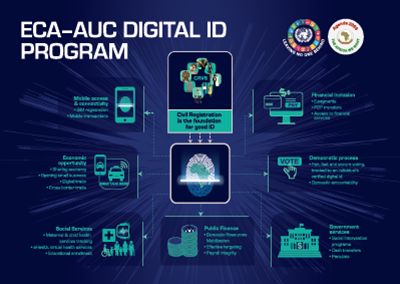What are the benefits of Digital ID, Digital Trade, and Digital Economy in Africa?
 Digitalization is shaping today’s global economic relations. Digital trade has established a considerable footprint, with business-to-business e-commerce transactions estimated to be worth over $15 trillion annually, and business-to-customer transactions a further $1 trillion. African e-commerce is also rapidly growing, at an estimated annual rate of 40%. Indeed, the digital economy in Africa is expected to grow to over $300 billion by 2025 (McKinsey, 2013), on the back of massive mobile penetration, among other technologies.
Digitalization is shaping today’s global economic relations. Digital trade has established a considerable footprint, with business-to-business e-commerce transactions estimated to be worth over $15 trillion annually, and business-to-customer transactions a further $1 trillion. African e-commerce is also rapidly growing, at an estimated annual rate of 40%. Indeed, the digital economy in Africa is expected to grow to over $300 billion by 2025 (McKinsey, 2013), on the back of massive mobile penetration, among other technologies.
Digital identification can be an important catalyst for various development initiatives in the continent, impacting on trade, governance, social protection, financial inclusion, domestic resource mobilization, as well as security and human rights.
Harmonized and interoperable civil registration and digital ID, form foundational legal identification systems that provide proof of legal identity necessary for multiple functional purposes including opening bank accounts, applying for passports, driver’s licenses, voter’s cards and other official documents. Furthermore, the integration of civil registration and ID management system enables robust and sustainable digital identification, prevents duplication of efforts, saves resources and time, and allows efficient public service delivery. Legal identity can spur innovation and entrepreneurship by reducing transactions cost and enhancing traceability of products. Legal identity can also strengthen the capacity of state institutions and their ability to deliver essential social services to the citizenry.
Digital Identity and the digital economy are not only linked, but are also, reinforcing, as digital ID is the basis for digital economy platforms. Digital ID thus will facilitate the participation of Africans in the digital economy yielding dividends for inclusion and the overall growth and development of the continent.